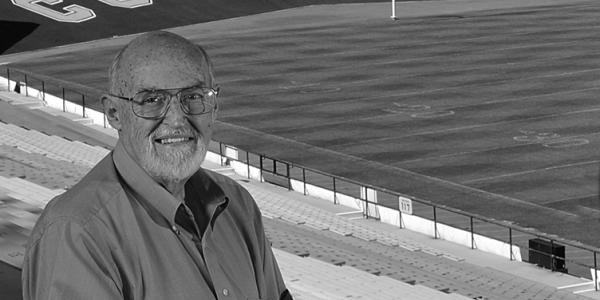CU's new president, a former congressman who later led the University of North Dakota, talks about his small-town youth, the future of work and his vision for CU.
 Early bird or night owl?
Early bird or night owl?
Early bird. During high school, I worked summers in a small-town bakery starting at 1 a.m. Since then, I have always found it valuable to get an early jump on things.
Coffee or tea?
Coffee. Born caffeinated, I did not start drinking coffee until later in life. I now find it indispensable to the start of every day.
Favorite ice cream?
Häagen-Dazs’ rum raisin.
Book you can’t forget?
I am haunted by Kai Fu Lee’s AI Superpowers. I am left with grave concerns that the United States is not taking the actions necessary to preserve our innovative edge, and that losing that edge will have profoundly negative consequences for our prosperity and security. This leaves me even more motivated to work hard to ensure America has the talent and the discovery necessary to keep our technological lead.
How would you describe yourself in one word?
360° — I have always striven to gain an ever-broader view.
Is there a “Colorado thing” you’re still getting used to?
I may never get used to driving along cliffs with no guardrails.
We hear you grew up in a small town...
I began life in Murdock, Minn., population less than 300, and at age 4 moved to Pequot Lakes, population around 450. I began working at age 14 picking strawberries, washing dishes and pumping gas. I was in band, choir, plays, student government, Boy Scouts and played in the area jazz ensemble. I lettered in basketball, track and field, setting a school record in the mile run, and managed the football team. In 4-H, I won trips to the state fair with my beef, electric and photography exhibits. My wife and I met as 4-H Ambassadors. It is hard to match the breadth of experiences available in a small town.
You served in Congress. What do you and don’t you miss?
I miss being in the midst of the debate on the most serious issues facing our nation. I enjoy raising money and advocating for policies I believe are important, both of which I do in my role as president of CU. I don’t miss purely partisan groups poised to attack every time you reject the extremes.
What about you tends to surprise people?
Those who travel by car with me are surprised that I regularly sing during the journey, normally beginning with “I am just a plain old country boy...”
If you could go to college again, what would you do differently?
Focus a little less on extracurricular activities and a lot more on striving for A’s. As a first-generation college graduate, I had no one to coach me. My undergraduate activities included work-study, dishwashing in the cafeteria and shelving books in the library, touring with the chorus, playing in the pep band, organizing an undefeated co-ed volleyball team, being captain of an intramural basketball team and serving on the student senate. My acceptance to Michigan’s MBA program provided a second chance. I took off Friday or Saturday evening, never both.
What do you think CU should do more of?
With most of today’s students likely to work during their lifetime in jobs not yet invented, it is ever more important that CU cultivates students’ critical thinking, team-working skills and cultural awareness by getting students to wrestle with difficult questions and fostering an environment of inquiry and debate. We should seek every opportunity to embrace adaptive learning technologies that supplement classroom dialogue led by knowledgeable professors with digital offerings that know what learners already understand, what they struggle with, how they respond to different teaching methods, what incentives drive them to excel. Today’s digital natives will increasingly rebel against being forced to learn at the same speed, in the same way, at the same place and at the same time.
What do you want to be remembered for?
As a president who called CU to stay true to its heritage of taking bold steps into the future, challenging it to not be trapped by rigid historical constraints, but instead to embrace technology to enhance the quality of a CU education, to make it more accessible and to keep it affordable.





